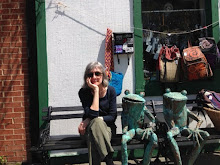The biblical patriarch Jacob is on his way to Haran, to get away from his brother Esau’s murderous anger and to find a wife for himself from among his mother’s kin.
He comes to a well, where the local shepherds get water for their flocks of sheep. There is a large stone covering the well, which normally takes several men to move.
He sees Rachel arriving with her sheep. Here’s how the Torah tells what happens next: “When Jacob saw Rachel the daughter of Lavan his mother’s brother, and the sheep of Lavan his mother’s brother, Jacob went near, and rolled the stone from the well’s mouth, and watered the flock of Lavan his mother’s brother. And Jacob kissed Rachel, and raised his voice and wept.” Jacob tells Rachel who he is, and she runs to tell her father.
It’s a great love story, isn’t it? The power of love is a wondrous thing.
Now here’s another way of understanding the story:
Our ancient sages make a link between scriptural images of water and Torah as the wellspring of wisdom. So in this story, the well represents Torah wisdom – the deep source of our sacred stories and traditions.
The large stone covering the well represents the yetser ha-rah – the inclination to do evil. Think of it as the part of us that is selfish, greedy, spiteful, hurtful. The yetser ha-rah blocks our access to the flow of wisdom.
In the mystical tradition, the patriarch Jacob is the symbol of Truth (emet). Truth has the power to see clearly what is happening, to push aside our inclination to do wrong, and thereby to uncover the wisdom that flows through us.
In this way, we can understand that the story of Jacob and the well is not really – or not entirely – about physical strength. Sure, Jacob has a macho moment in which his love for Rachel empowers him to do what seems impossible. (And I imagine that his body was sorry the next day!) But there is also a spiritual message:
We each have intense inner strength to choose to do what is right in a difficult situation. We can see clearly what is the truth, and with that clarity we can push aside the heavy stone of our desire to do the wrong thing. And when we do that, the healing waters of wisdom can flow freely in our lives.
[Note: According to the Netivot Shalom, Jacob is able to do this because he has completely nullified his Ego in the service of God. In other words, it is from a place of deep humility (ayin v'efes) that one can push away the yetser ha-rah.]
Source text: Netivot Shalom on Vayetse
He comes to a well, where the local shepherds get water for their flocks of sheep. There is a large stone covering the well, which normally takes several men to move.
He sees Rachel arriving with her sheep. Here’s how the Torah tells what happens next: “When Jacob saw Rachel the daughter of Lavan his mother’s brother, and the sheep of Lavan his mother’s brother, Jacob went near, and rolled the stone from the well’s mouth, and watered the flock of Lavan his mother’s brother. And Jacob kissed Rachel, and raised his voice and wept.” Jacob tells Rachel who he is, and she runs to tell her father.
It’s a great love story, isn’t it? The power of love is a wondrous thing.
Now here’s another way of understanding the story:
Our ancient sages make a link between scriptural images of water and Torah as the wellspring of wisdom. So in this story, the well represents Torah wisdom – the deep source of our sacred stories and traditions.
The large stone covering the well represents the yetser ha-rah – the inclination to do evil. Think of it as the part of us that is selfish, greedy, spiteful, hurtful. The yetser ha-rah blocks our access to the flow of wisdom.
In the mystical tradition, the patriarch Jacob is the symbol of Truth (emet). Truth has the power to see clearly what is happening, to push aside our inclination to do wrong, and thereby to uncover the wisdom that flows through us.
In this way, we can understand that the story of Jacob and the well is not really – or not entirely – about physical strength. Sure, Jacob has a macho moment in which his love for Rachel empowers him to do what seems impossible. (And I imagine that his body was sorry the next day!) But there is also a spiritual message:
We each have intense inner strength to choose to do what is right in a difficult situation. We can see clearly what is the truth, and with that clarity we can push aside the heavy stone of our desire to do the wrong thing. And when we do that, the healing waters of wisdom can flow freely in our lives.
[Note: According to the Netivot Shalom, Jacob is able to do this because he has completely nullified his Ego in the service of God. In other words, it is from a place of deep humility (ayin v'efes) that one can push away the yetser ha-rah.]
Source text: Netivot Shalom on Vayetse
